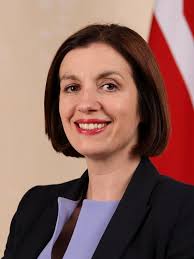Bridget Phillipson: Shaping Education Policies in the UK

Introduction
Bridget Phillipson, the current Shadow Education Secretary, is a notable figure in UK politics, playing a crucial role in shaping the future of education policy. Born in 1983 in Sunderland, her journey in politics has been marked by a commitment to advocating for better educational outcomes and social equality. Her ascent in the Labour Party reflects the shifting political landscape within the UK, particularly as the nation faces ongoing challenges in the education sector.
Bridget Phillipson’s Political Career
Phillipson’s political career began in the late 2000s as a dedicated member of the Labour Party. She was first elected as Member of Parliament (MP) for Houghton and Sunderland South in a by-election in 2011, succeeding former cabinet minister Labour’s Doug Henderson. Since then, she has built a reputation as a strong advocate for education, young people, and families, even being appointed shadow ministers for education and childcare roles under Keir Starmer’s leadership.
Recent Developments
In recent months, Phillipson has been vocal about proposed reforms in the education sector, particularly in response to the challenges presented by the COVID-19 pandemic. The Labour Party, under her guidance, has outlined ambitious plans to address educational disparities, increase funding for schools, and improve teacher recruitment and retention. In a recent speech, she emphasised the importance of ‘not just recovering from the pandemic but building a better future for our children.’
Moreover, she has been proactive in highlighting issues around mental health support in schools, arguing that a comprehensive approach to education must also consider the wellbeing of students.
Impact and Future Outlook
Bridget Phillipson’s influence within the Labour Party is growing, especially as she continues to advocate for educational reforms that resonate with families across the UK. Her focus on issues such as equal access to quality education, mental health support, and fighting the educational attainment gap suggests that she is positioning herself as a pivotal figure in meeting the needs of the electorate.
As the next general election approaches, her policies and potential leadership within the party will be closely watched, particularly in how they align with public concerns about education. Phillipson’s commitment to reform, paired with a growing public interest in educational issues, indicates that she could play a significant role in shaping the narrative around education in the upcoming political landscape.
Conclusion
In conclusion, Bridget Phillipson stands at the forefront of pivotal discussions that will influence the future of education in the UK. Her advocacy, particularly in the context of recovering from the impacts of the pandemic, demonstrates her dedication to building a hopeful vision for the next generation. Stakeholders, educators, and families alike will be keen to see how her policies evolve as she continues to tackle the challenges in the educational sector, making her a key figure in the evolving political scene.








